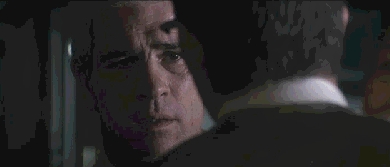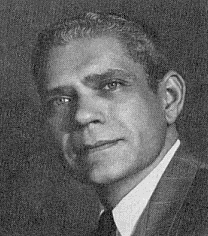Допрос Клэя Шо

Tommy Lee Jones as New Orleans businessman Clay Shaw
Увы, эта сцена фильма - чистая беллетристика. В действительности Шо был допрошен на неофициальной сессии 23 декабря 1966. Его спросили, где он был во время убийства Кеннеди (в Сан-Франциско) и знал ли он Ли Харвей Освальда (Нет, не знал). Он произвел благоприятное впечатление на Гаррисона, который впоследствии сказал своим подчиненным: "...забыть про Шо."
А два месяца спустя, после смерти его единственного серьезного подозреваемого, Д. Фэрри, Гаррисон и обратил внимание на К. Шо, из-за его теории, что Шо был таинственный Клэй Бертран, описанный в доказательстве Комиссии Уоррена.
Никогда во время опроса Шо не было упомянуто ЦРУ. Фактически, до начала процесса в 1969 году против Шо, Гаррисон никогда публично не упоминал какое либо подозрение в причастности Шо к ЦРУ. Материалы дела никогда не упоминали Шо, как сотрудника ЦРУ
Вот то, как К. Шо непосредственно позже описал свою встречу с Новоорлеанским Окружным прокурором журналисту James Kirkwood:
"On December 23, 1966, I had a call early in the morning from a Detective Otillio in the District Attorney's office; would I be good enough to come down and answer some questions? I was curious and asked what about. 'Well,' he said, 'we'll talk about that when we see you.' I said all right and he came by and drove me to the DA's office, where I was questioned by an assistant DA named Sciambra, who told me they'd come across the fact that Lee Harvey Oswald had known someone named Clay Bertrand when he was in New Orleans. They'd gone over a list of Clays, thought about me, and wanted to know if I'd known Oswald. I said no, that I'd almost met him when he'd come to distribute Fair Play for Cuba leaflets in front of the Trade Mart, but that my assistant had dealt with him. I added, with what in retrospect seems irony, that I guess I missed my tiny footnote in history by not meeting the bird. They wanted to know more about the Cuban consulate -- it was the presence of the consulate in the building that drew Oswald to that point to distribute the leaflets -- and most of their questions concerned that. I was asked if I knew a man by the name of Dave Ferrie. No, I hadn't. Then Jim Garrison came in and we rehashed what I'd already told Sciambra. It was all very friendly and then they thanked me profusely for being a good citizen, for being cooperative and coming in and talking to them, and I left. Went on to a Christmas party at City Hall."
[Kirkwood writes:] I asked Clay Shaw how he felt about this and he smiled and waved a hand in the air. "I felt it was interesting dinner conversation. You know, being called down to the DA's office and grilled. I thought it was kind of entertaining. I didn't take it seriously at all. After that I read in the papers about Garrison's probe, read about Dave Ferrie's death and about someone named Russo writing a letter to the District Attorney saying he'd known Ferrie. But I had no more than a cursory interest in what was going on.
"Then on Sunday evening, February 26, a Walter Sheridan from the NBC Washington Bureau got in touch with me, wanted to know if he could come over and talk with me. I said yes, and he arrived some after." Clay Shaw hesitated and lifted a hand in the air, one finger pointed up. "You know, it's funny but a faint alarm sounded when I asked him if he'd like a drink and he hesitated perceptibly. I thought this was strange, but he recovered and said he'd have one. I wondered why this man wouldn't want to take a drink with me, but then I thought, Oh, well, I'm imagining things. I fixed our drinks and he said there were rumors in town I was the mysterious Clay Bertrand that a man named Dean A. Andrews, Jr., had talked about in connection with Oswald. I pointed out to him that it would be ridiculous for me to try to use an alias of any kind, that I was well known in the city, I'd been on television, given speeches, my picture had been in the papers over a period of years and, because of my size alone [Shaw was 6'4"], I couldn't very well get away with running around using a fictitious name. I told him I had no idea what was going on, but I did know that I was not now nor have I ever been Clay Bertrand. We talked in general about Garrison's probe, then he thanked me and left. I still thought the whole thing was silly," Clay Shaw added, sloughing it off with a shrug that belongs back in time more than a year.

Clay ШоуClay Shaw
Вообще, у Гаррисона не было никаких оснований не только для привлечения К. Шо в качестве обвиняемого, но даже и оснований для превличения его как свидетеля не было? Решение об аресте Гаррисон принял после отказа К. Шо пройти тест на детекторе лжи и после весьма сомнительного опознания свидетелем П. Руссо. Шо, потребовал адвоката и Гаррисон счел этот отказ подтверждением обвинения.
Вот как Шо в дальнейшем описывал этот момент.
I interrupted Clay Shaw. "Did you call your lawyer or --" He waved a hand in the air. "No, I didn't even think about it. Who needs a lawyer?" he asked rhetorically. "I rode out to the DA's and was kept waiting until about two-thirty in various offices talking to Otillio, who incidentally told me the story of his life." Shaw grins but the grin soon disappears. "I began to get a little annoyed. I was being cooperative but by this time I'd been there two and a half hours. I hadn't had any lunch and I was hungry and I began to be a little sharp about the whole thing. Finally I was told that Sciambra and Ivon wanted to talk to me, so I was taken into a room where they were. They got me a sandwich and a Coke -- on the state, I didn't have to pay for it; however, the price turned out to be rather severe. I asked them what they wanted and they began to question me. Did I know David Ferrie, had I ever been to David Ferrie's apartment? The answer was no. And on and on. They showed me pictures of Ferrie and others. Did I know Lee Harvey Oswald? No. 'You've never been to David Ferrie's apartment?' No. Then finally: 'What would you say if we said we have three witnesses who would testify that you'd been to David Ferrie's apartment?' I told them I'd say that either the three witnesses were mistaken or lying -- that I'd never been there, period. This went on for the better part of an hour or so. Finally I was asked if I'd take a lie-detector test. 'No,' I said. 'I've come down here, I've been cooperative, I've told you the truth.' They told me that if I wouldn't take a lie-detector test they were going to arrest me and charge me with conspiracy in the murder of President Kennedy."
Clay Shaw's eye, even now, widen in disbelief and he flings his arms out to the side of his chair. "'You've got to be kidding,' I said, 'you've got to be kidding!" No, they said, that's the way it is. 'In that case I want a lawyer and I want one now.'"
He called his lawyer, Eddie Wegmann, who was out of town; called his brother, William J. Wegmann, who was also unavailable; finally contacted an associate of the latter, Salvatore Panzeca, who said, "Sit tight, don't say anything, I'll be right down." Shaw was left alone, locked in a room, until Panzeca arrived and took out a pad on which he wrote that the room was bugged, the mirror was two-way, and they'd best communicate in writing. He asked Shaw what this was all about and Clay, now completely stunned, could only scrawl, "I don't know." Panzeca then left to speak to the DA, telling Garrison that his client would not object to taking a lie-detector test but that he, Panzeca, would like him to have a good night's sleep first and they wanted the right to look at the questions; anything pertaining to the President's assassination was fine, but the questions would be limited to that.
Garrison, however, smarting from a baying press, from the world, in fact, shouting for him to come up with something or someone solid after days of dropping tantalizing hints that he had solved the riddle of the assassination, swung into high gear and said, "No deals, he's got to do it right now or we'll arrest him."
В 1972 году, суд подтвердил полную непричасность К. Шо к убийству Кеннеди и незаконность привличения его в качестве обвиняемого из - за полного отсутствия доказательств.
Вероятнее всего Д. Гаррисон просто отчаялся после смерти Д. Фэрри, своего главного подозреваемого. Ведь уже не провести процесс он не мог, а процесс без обвиняемого не возможен.
Создано на конструкторе сайтов Okis при поддержке Flexsmm - накрутка подписчиков в инстаграм